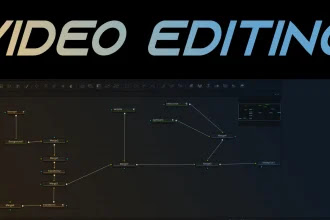Crafting Visual Narratives: The Artistry and Importance of Video Editors. In the realm of visual storytelling, video editors are the unsung heroes who transform raw footage into captivating narratives that captivate and move audiences. With their creative vision and technical expertise, video editors play a pivotal role in shaping the final product that we see on screens of all sizes. In this article, we explore the artistry of video editors, their skills, impact, challenges, and the essential role they play in modern media production.
The Role of Video Editors
Video editors are the architects of visual narratives, responsible for assembling clips, selecting shots, and enhancing the overall visual and emotional impact of a video. Their work extends beyond mere cutting and splicing; they curate the pacing, rhythm, and mood of the story, seamlessly weaving together elements to create a cohesive and engaging experience.
The Skill Set of Video Editors
The role of a video editor demands a diverse set of skills that encompass both technical prowess and creative finesse:
Visual Storytelling: Video editors are storytellers at heart. They understand the nuances of narrative structure, pacing, and character development, translating scripts and footage into compelling stories.
Technical Proficiency: Mastery of video editing software is essential. Video editors navigate intricate tools to manipulate footage, add effects, and create seamless transitions.
Aesthetic Sensibility: Editors possess a keen eye for composition, color, and visual aesthetics. They make critical decisions about shot selection, ensuring visual coherence and impact.
Emotional Resonance: Video editors understand how to evoke emotions through pacing, music, and visual cues. They harness the power of editing to connect with viewers on a visceral level.
Collaboration: Video editing is often a collaborative process, requiring effective communication with directors, cinematographers, sound designers, and other stakeholders.
Problem-Solving: Editors tackle technical challenges and creatively address issues that arise during the editing process, ensuring a seamless final product.
The Impact of Video Editors
The work of video editors reverberates through various domains of media and entertainment:
Film and Television: In cinema and television, video editors shape the narrative, rhythm, and atmosphere of the story. They influence how audiences perceive characters and experience emotions.
Documentaries: Video editors play a crucial role in crafting compelling documentaries that educate, enlighten, and inspire. They distill hours of footage into cohesive narratives.
Advertising and Marketing: In the world of advertising, video editors condense complex brand messages into concise and impactful videos that resonate with consumers.
Online Content: Video editors shape the content landscape of platforms like YouTube and social media, creating engaging videos that capture users' attention in a crowded digital space.
Challenges and Evolution
The journey of a video editor comes with its own set of challenges:
Time Constraints: Meeting tight deadlines while maintaining the quality and integrity of the content can be a delicate balancing act.
Creative Vision: Balancing the director's vision with one's creative instincts requires sensitivity and collaboration.
Technical Advances: The rapid evolution of editing software and technology necessitates continuous learning and adaptation.
Future Trends in Video Editing
As technology continues to evolve, video editing is poised for exciting transformations:
Artificial Intelligence (AI): AI-powered tools can automate routine tasks, allowing editors to focus on higher-level creative decisions.
Virtual Reality (VR) and Augmented Reality (AR): Video editors will explore immersive storytelling in VR and AR, creating interactive experiences.
Remote Collaboration: Cloud-based editing platforms facilitate remote collaboration, enabling editors to work seamlessly across geographical boundaries.
Conclusion
Video editors are the magicians behind the scenes, breathing life into raw footage, and weaving narratives that resonate with audiences. Their role bridges the gap between imagination and reality, translating concepts into compelling visual stories that leave a lasting impact. As media consumption patterns evolve and technology continues to shape the landscape, the role of video editors will remain at the forefront of creative storytelling, shaping the way we perceive, engage with, and connect to the world of visual content.



0 Comments